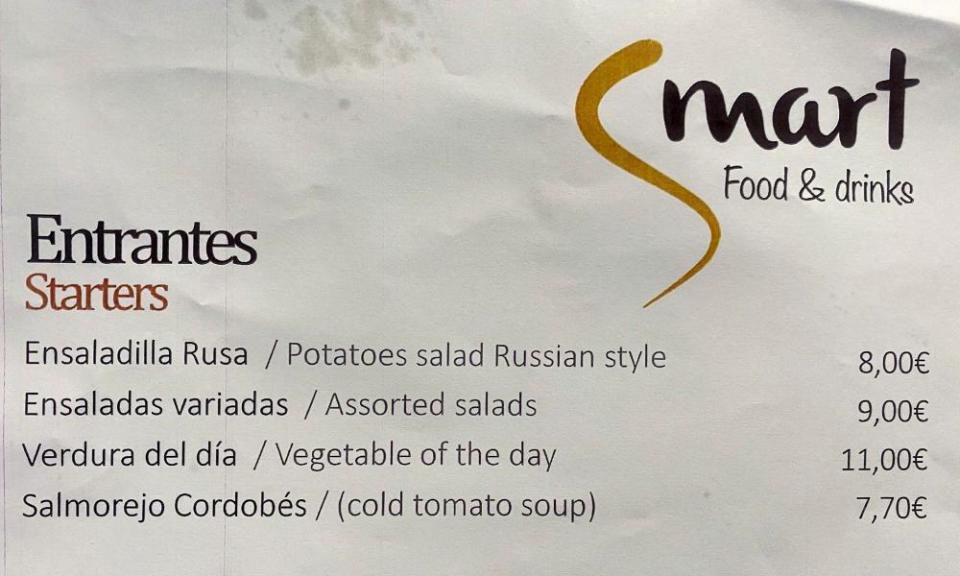‘I’m a little surprised’: Nato summit venue in Madrid serves ‘Russian salad’
As Nato leaders gather in Madrid for a summit playing out in the shadow of Russia’s invasion of Ukraine, the spotlight has landed on a ubiquitous staple found in bars and restaurants across Spain: Russian salad.
International officials and journalists were bemused to find the salad – a combination of potatoes, mayonnaise and vegetables known as ensaladilla Rusa – being sold as “potatoes salad Russian style” at the summit venue.
“Russian salad at a Nato summit? I’m a little surprised by that choice of dish,” the journalist Iñaki López told the Spanish media outlet la Sexta.

While the name did little to dampen its popularity – the dish reportedly sold out in hours – within a day it had been renamed, with the menu now listing it as “traditional salad”.
The Spanish chef José Andrés went one step further, adding tomato dumplings and calling the dish Ukrainian salad in a show of solidarity at the dinner he coordinated for visiting defence and foreign ministers on Tuesday.
It was an extension of a rebrand that began last month when Andrés announced he would change the dish’s name at all his restaurants, joining a wave of bars and restaurants to have done so in recent months.
And starting tomorrow officially I’m announcing that the iconic Spanish tapa: Ensaladilla Rusa…..will change its name to Ensaladilla Kiev or Ensaladilla Ucraniana….at all my restaurants!!! https://t.co/NSb8HKcUaY
— José Andrés (@chefjoseandres) May 14, 2022
Among the first was Mesón Martín, a three-decade old restaurant in the northern city of Zaragoza. “Friends, we’ve decided to change the name of the famous salad,” the restaurant announced on social media in late February. “From today, you will find the Kyiv salad on our menu, in solidarity with the people of Ukraine.”
It is not the first time the Spanish staple – credited by many to the Italian-British cook Charles Elmé Francatelli – has fallen prey to politics. During the dictatorship of Francisco Franco, bars and restaurants often changed the name to ensaladilla nacional, or national salad, to avoid being associated with the distribution of pro-Communist propaganda.
It is also not the first time food has ended up as a diplomatic pawn. In 2003 french fries and french toast were renamed “freedom fries” and “freedom toast” in US Congress cafeterias by Republicans outraged at France’s opposition to the invasion of Iraq.

 Yahoo News
Yahoo News 
